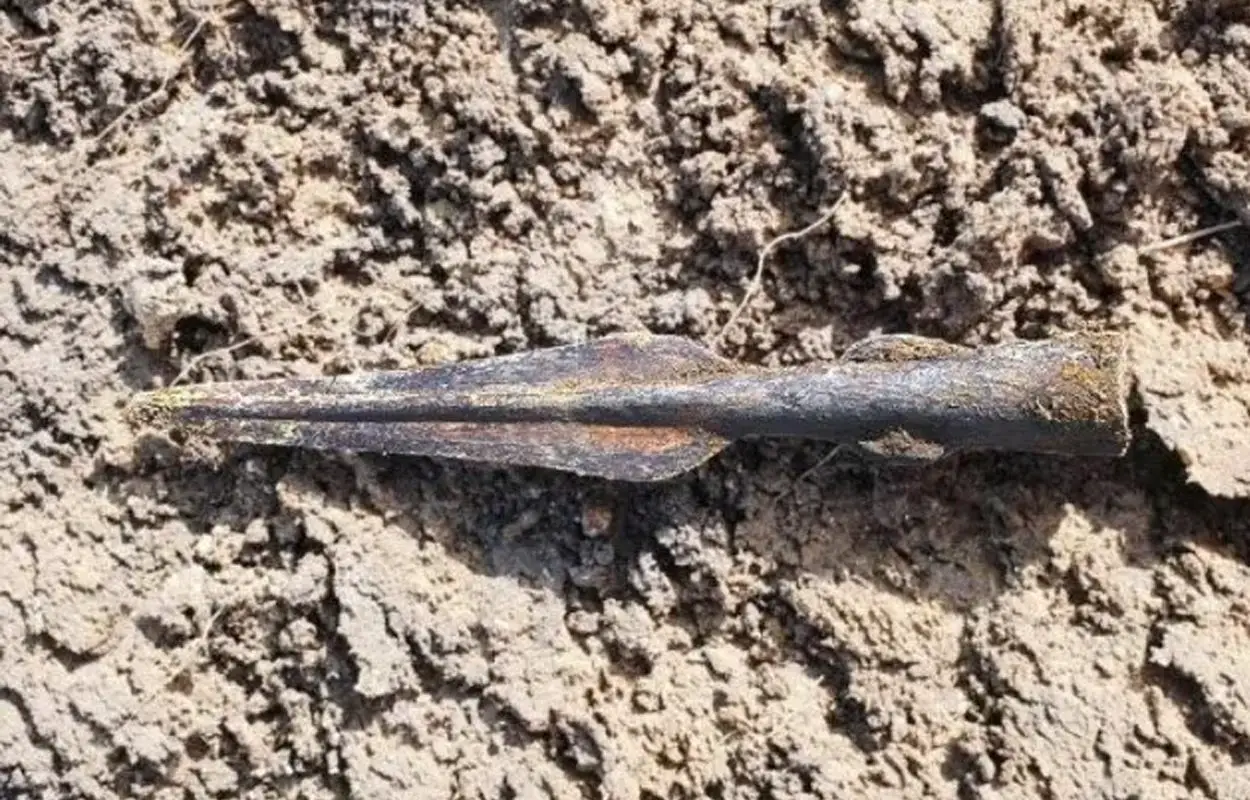A Bronze Age spearhead was discovered during construction works of a new wetland habitat at a Thames Water sewage works in Cirencester, England.
The wetlands will cover around four hectares of a floodplain, providing a valuable habitat for a range of wildlife including amphibians, insects and wading and migratory birds.
Excavations of the site was conducted by Cotswold Archaeology, revealing a near-pristine 3,000-year-old spearhead.
Archaeologists also uncovered pottery and animal bones, along with evidence of ancient trackways, and dwellings that date from the Bronze Age through to the Roman period.
Alex Thomson, Cotswold Archaeology’s Project Manager said: “We knew the site had archaeological potential, but we didn’t quite expect the extent of what we uncovered. It’s always exciting as you never know what you’re going to find – it could be absolutely nothing or, as in this instance, you could find more than you bargained for.”
The spear is thought to be associated with a wider settlement found nearby during excavations undertaken in the late 1990s and is likely a valuable family heirloom deposited deliberately in a pit.
The spearhead was the latest in a string of interesting archaeological finds uncovered by Thames Water in recent years. In 2019, the water company discovered 26 human skeletons, thought to be about 3,000 years old, during a £14.5m water pipe scheme in Oxfordshire.
The artefacts from the wetland project are currently under examination, with plans to exhibit them at the Corinium Museum in the near future.
Header Image Credit : Thames Water





